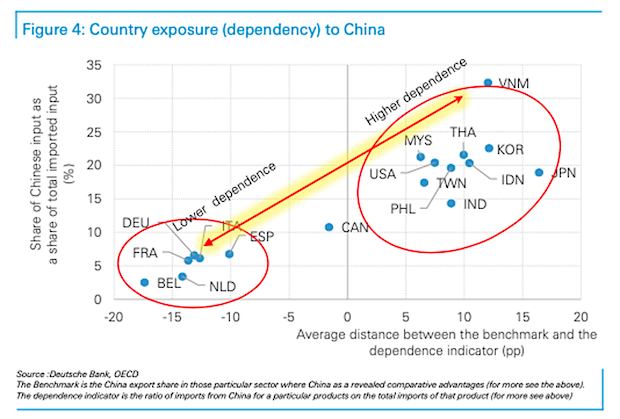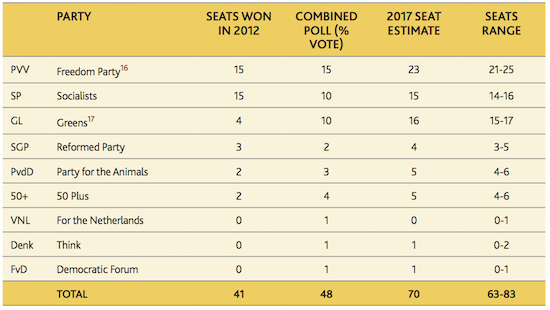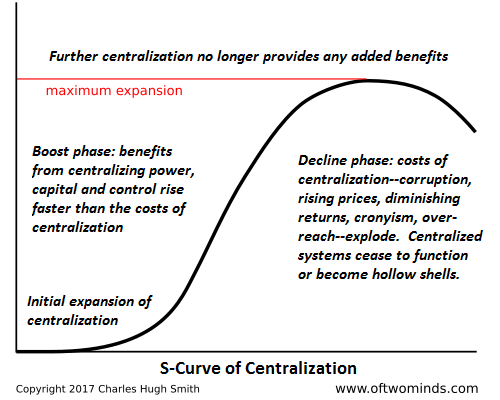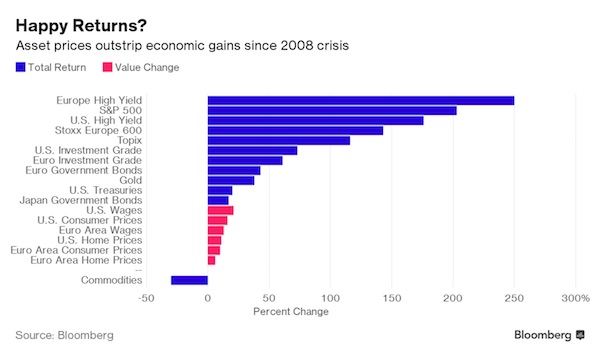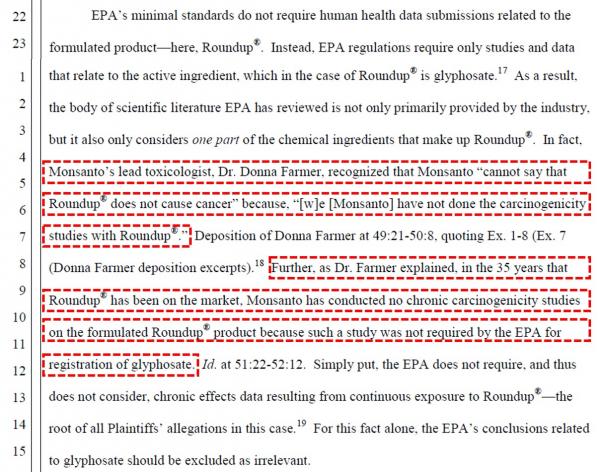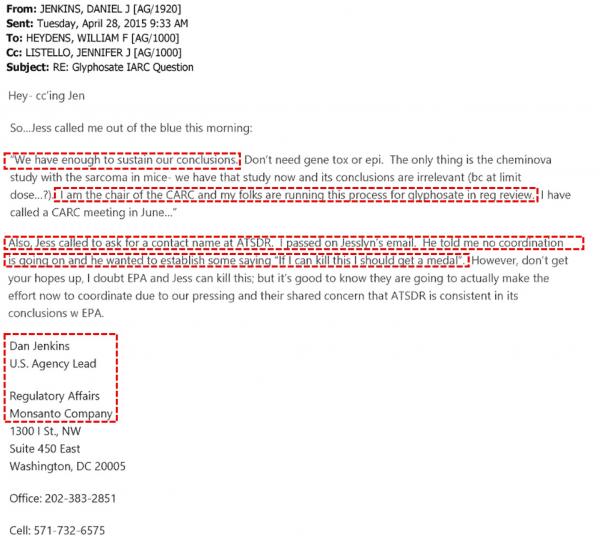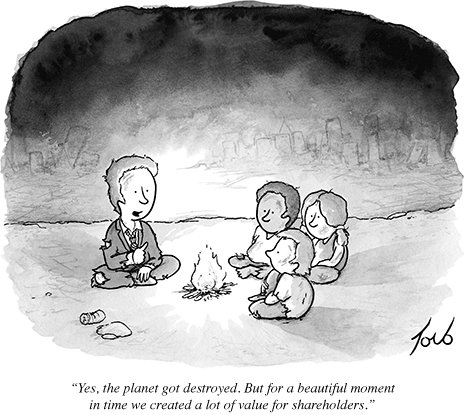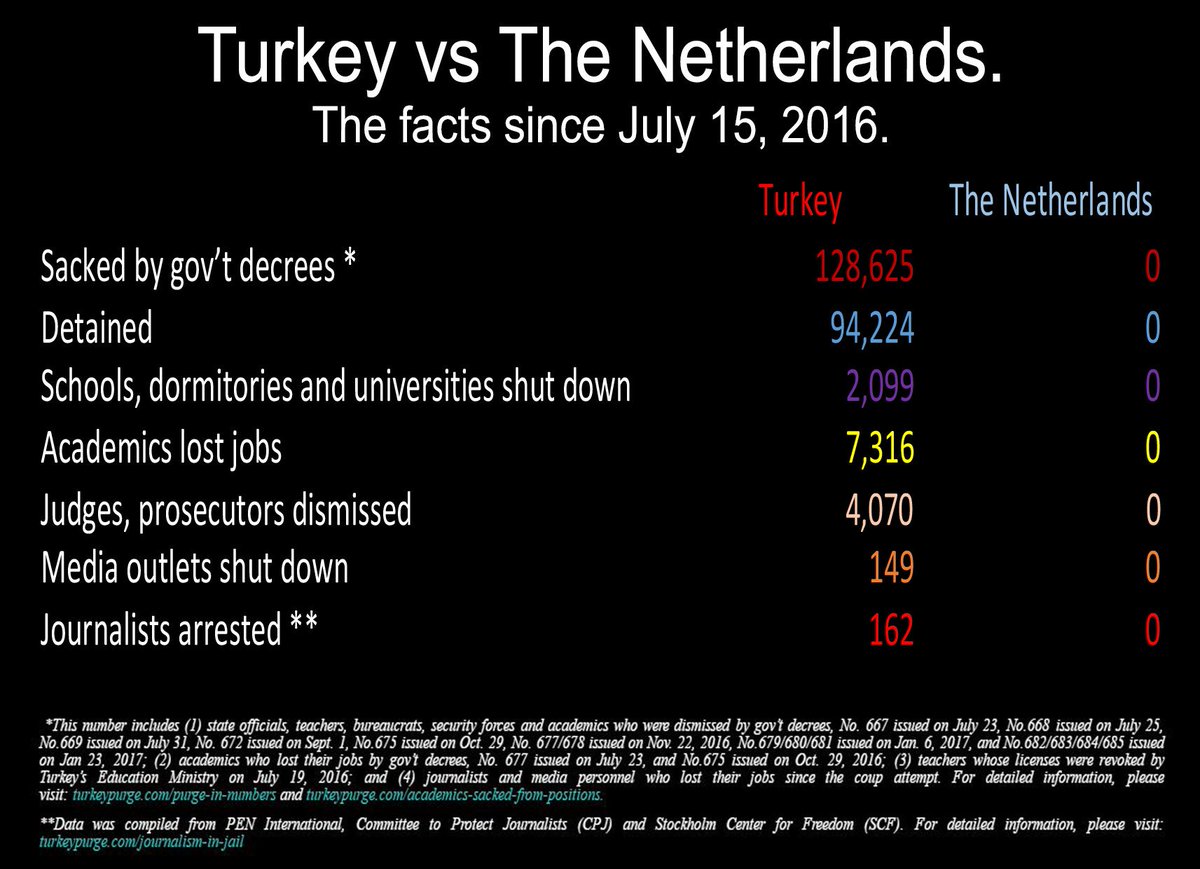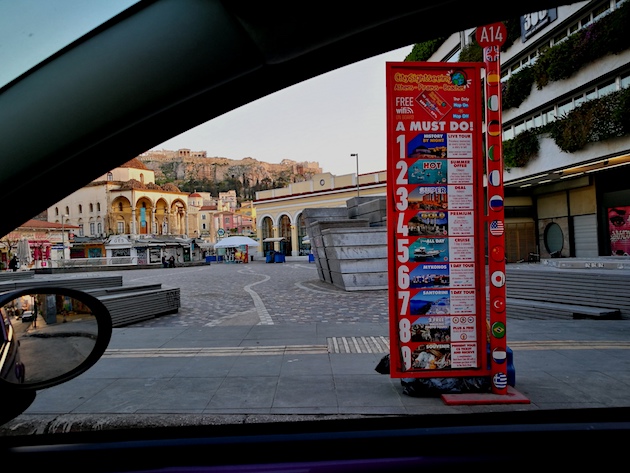
Monastiraki Square deserted due to lockdown, Athens, Greece 2020
Well, actually, there is no Automatic Earth in Athens right now. But we’re working on it. And I have had a hard time finishing articles recently for some reason. It may be because it’s virustime, and it’s certainly because of the lockdown. People are social animals, and I am no exception. Living alone and working alone makes it more extreme.
Not that I have changed my mind on lockdowns; they are the only option to tame the virus under the circumstances. Still, a lockdown must be executed properly, to make it “as close to impossible as possible” for the virus to jump to new hosts, and that has only been done in very few places, either because politicians and “experts” don’t understand how and why, or they find it too inconvenient. But enough about that for the moment, even as today’s new global cases top 130,000 in yet another new record.
In mid-December I went from Athens to Holland, where I still rent a small apartment though I’ve been spending most of my time in Athens. I thought I’d stay a few months in the Lowlands, do some of the everyday -or every year- stuff that needs doing, taxes, medical things etc., and return to Athens in spring.
I had a ticket back to Athens from Holland on April 1, which I had bought early February, when things still seemed somewhat normal. But as the date approached, of course, we moved ever further away from normal. If I had booked a few weeks earlier, things might have worked out, but Greece implemented a very strict lockdown, so it wouldn’t have been much fun.
I could change the ticket for free until two weeks before departure, after which the cost for changing it would be close to the original ticket price. So I changed it. By then, there was a two-week mandatory full quarantine in place for new arrivals in Greece. Not very tempting, but more importantly I was thinking I didn’t want to become a burden on the Greek healthcare system.
Which according to some has shrunk by 75% (imagine that) due to EU-mandated austerity. I was thinking the odds of Greece and the Greek system being overwhelmed were much higher than that it would happen in Holland. Boy, was I wrong. The irony is that it is exactly this that made Greece adopt the strict lockdown measures it did, as early as it did, and faring so much better because of it.
For 2 months, until 2 weeks ago, everyone who was out in the street had to carry a piece of paper detailing why they were out (try that in the US!). The only valid reasons to be out were shopping for food or medicine. All stores other than supermarkets and pharmacies were closed anyway. Greece was early and strict. They didn’t feel they had a choice.
And even if so much of the healthcare system has been bulldozed, the core is still very strong, that is a major factor. The professionals (experts) running the system and advising the government are of a very high caliber, which is more than one can say of many other countries.
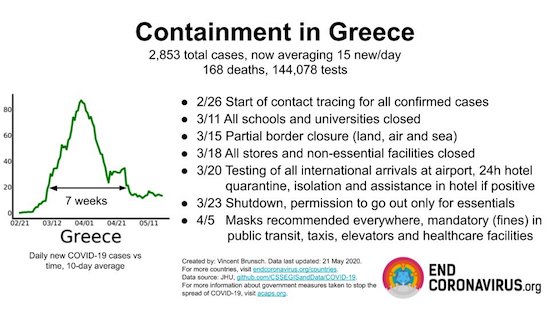
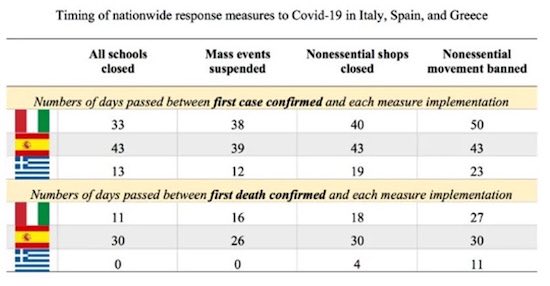
In Holland, it’s been a very different story. It was late to the game, and when it did decide on a lockdown, it called it an “intelligent” lockdown. Like Dutch people are smarter than others. Which, of course, people like to hear. Most stores have remained open (though not public transport), there was no mass testing, only people with obvious symptoms were tested, and the Dutch version of the CDC still maintains today that face masks don’t actually work (i.e. we are more intelligent than 4.5 billion Asians).
Like in many other countries, the lack of testing and masks really only had one reason behind it, and it wasn’t that they would not work, or that anyone believed they didn’t, it was that they didn’t have any. And then when a government says they’re not needed, the pace at which they are purchased abroad or can be produced domestically slows down too, even with all the high tech industries in the country. That way you sort of boil in your own fat.
We’re 5 months into the pandemic, and only now can one get tested without already being on the verge of death [Update May 31: still no test available without symptoms, asymptomatic carriers be damned. Should I fake symptoms?]. And only now are masks obligatory in public transport. This means the virus has become pretty much embedded, though perhaps not yet endemic, in the population.
It’s a giant gamble with the lives of your citizens when you try to hide your failure to acquire the necessary tools and implement the needed procedures, behind stories about how well “we” are really doing. The kind of gamble that politicians should at the very least by forced to quit for, but that is not going to happen.
But, more irony, they’re real popular. People buy the narrative that “this is the best we could have done”, and hang on to their lips every day for a shred of good news. That happens in many countries, of course, and, yes, it has a function: if you want to do a lockdown, above all you need a sense of unity. That it is used to hide lies and failures is almost an afterthought.
I don’t try to point out to people here -the few I see- anymore that their government has done a terrible job; they all watch the same news, and they’ve all bought the same “we’re in this together” kool-aid. Which, again, does serve a purpose, but it’s also very false. Here are the latest numbers from Worldometer:
Holland:
17.3 million people,
46,257 cases of COVID19, and
5,951 deaths.
Greece:
10.7 million people,
2,915 cases and
175 deaths.
I don’t even have to do the percentages, do I? The “successful” and “intelligent” Holland not only, 5 months in, still has an “official” worse “deaths per million population” rate than the US(!), the Dutch numbers also invariably come with the official addition that “real” numbers of both cases and deaths are much higher due to the lack of testing.
Almost as if they’re proud of it. As if it’s a waste of time to try and keep track of how and where the virus is spreading in your society, something you won’t ever know if you only test and count people who are already in hospital or dead.
High time for a more uplifting story. In early March, as Greece lockdown measures took hold one by one, almost all of the social kitchens were quickly shut down. But not the people the Automatic Earth has been supporting for 5 years running with your kind help. “Our” crew changed strategy as cooking in the street was no longer an option, and started preparing meals in a central place, only to drive down and hand them out fully ready in the familiar places near Monastiraki square and the Piraeus port.
And because so many other social kitchens had closed and the homeless still needed to eat (always the first to bear the brunt, no exception this time), they made -and make- a lot more meals as well than they were used to doing, and worked 4 days instead of 2, preparing some 700 meals every week.
It’s not just many more meals, but every meal takes much more time and energy to prepare than usual; each has to be packaged separately, because of course fears were that the homeless would be most susceptible to the virus. In short, they’ve all been working their behinds off. Everyone talks about heroes, and these people are mine. Let me show you with a few pictures:
Here’s Monastiraki square, deserted (with the Acropolis on top of the mountain):
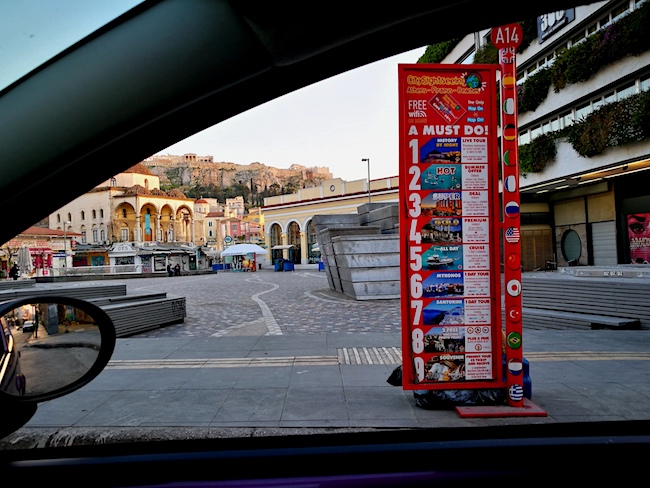
Some of the crew preparing meals in the central place:
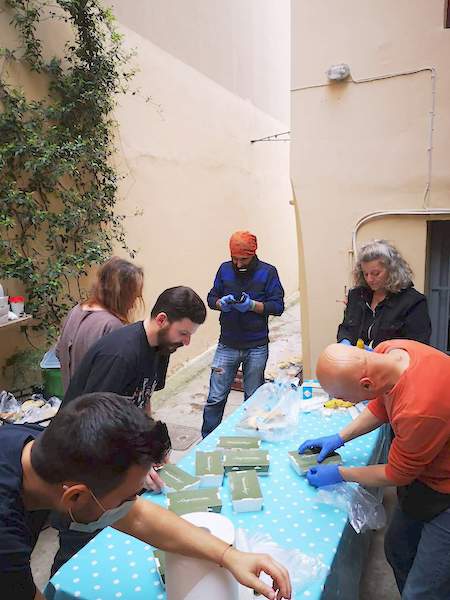
And posing (that’s Tassos doing his finest Greek Zorro):
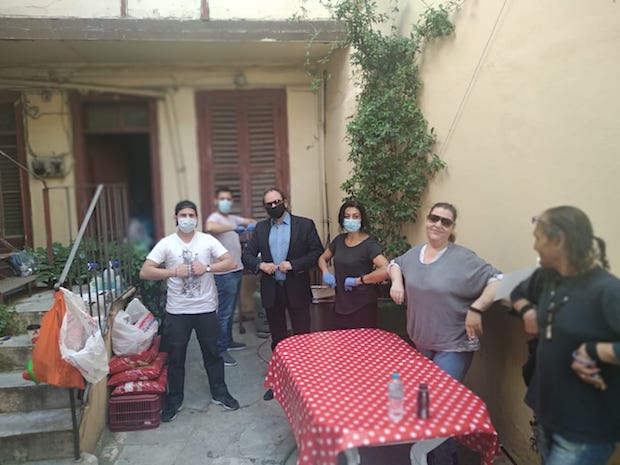
Then there’s of course -some of- Da Boyz:

The usual hot meal in the big pot:

But lots of other things too, all individually wrapped:

Which then end up in these crates before they’re loaded into cars to be distributed.

I love this picture, these are some of the things served on Greek Easter, April 19, because the homeless, too, should celebrate:

And then the packages are handed to the people in central Athens:
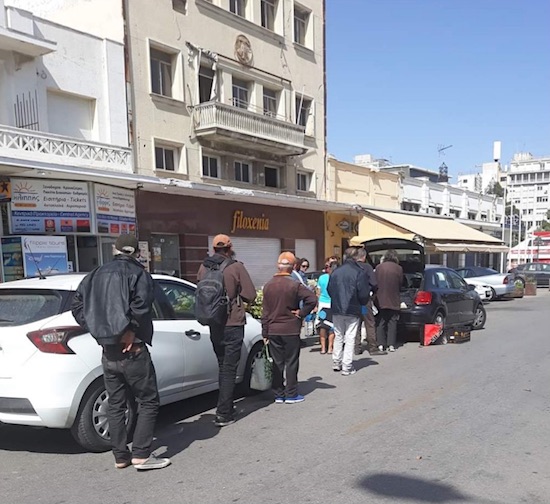
And at the port of Piraeus:
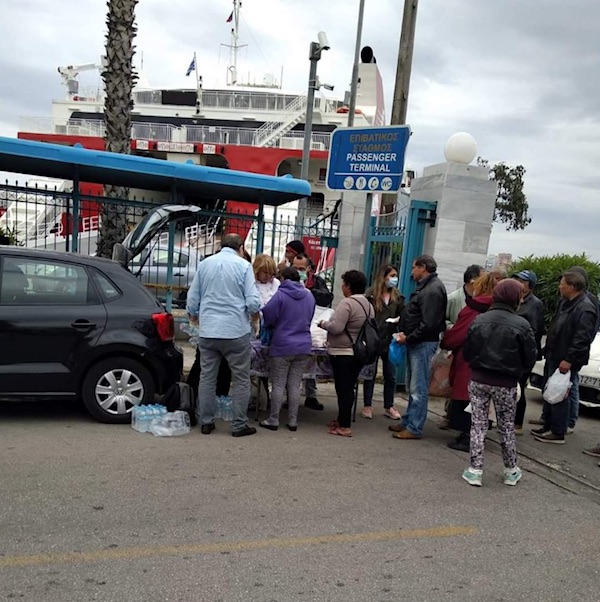
Greece, like other countries, is slowly easing its lockdown, first the stores opened, last week it was terraces at bars and restaurants, and next week it will be the inside of these places too.
“The Crew” is not yet back to cooking in the streets, that will take a bit more time. I’ve been keeping in close touch with them, and it’s high time to replenish the supermarket “checks” I last arranged for in December. First thing I’ll do when I get there. Been offering it all the time, a bank transfer might have worked, but so far they manage.
Air traffic is resuming as well, bit by bit. When I changed my ticket in mid-March, I had no idea what would be realistic, and picked June 16 “out of a hat”. Not a bad guess, it turns out. June 16 became 17, and 2 days ago the Greeks said Holland is a risk country, so no flights before July, but this morning they changed that again, to mandatory testing at the airport followed by a night in a designated hotel; it now looks as if this might actually happen. Then again, 17 days is an eternity in virustime of course.
And in the process I’ll get tested, something I can’t get done in Holland. I’ve been holed up in an area of Holland with very few infections, but I’ll still have to do the train-airport-plane routine to get to Athens, all places where the danger of being infected is -relatively- high. Holland is a country the size of a postage stamp, and it still today averages more new cases than Greece has had total deaths.
As always when I write about the Automatic Earth in Athens project, I ask you to support it. There are still a few hundred dollars left, but I want to buy at least €1000 worth of supermarket checks, so the crew can fill their by now empty pantries and cupboards and do something extra for the clients, who haven’t had an easy time.
The way it goes is simple and identical to how we’ve always done this: you can donate through our Paypal widget at the top left corner of the site. Any donations that end in $0.99 or $0.37 go straight to the crew, other amounts go to the Automatic Earth, which also badly needs support, and which you can of course also support via Patreon, see top right corner of the site.
I am honored and proud to be associated with these people, and proud of the bonds we have forged since 2015, and I think you should be too. Together, we support the most vulnerable people, homeless and refugees, in a city still overflowing with vulnerable people (with many more added because of the virus), and we do it through a crew that doesn’t cease to amaze with their selflessness.
I don’t remember if I ever mentioned this, but a few years ago I was talking to a guy who did a project on Lesbos, maybe still does, and we were saying: many years from now, when looking back on your life, what will you be most proud of? We both concluded that this would certainly among the top in the list: supporting the weakest members of society. But I can’t do it without your help, which has been amazing all this time, and which I hope will continue in the same way that I am determined to continue to support this wonderful little shimmer of light.

We try to run the Automatic Earth on people’s kind donations. Since their revenue has collapsed, ads no longer pay for all you read, and your support is now an integral part of the interaction.
Thank you.

Support the Automatic Earth in virustime.




















